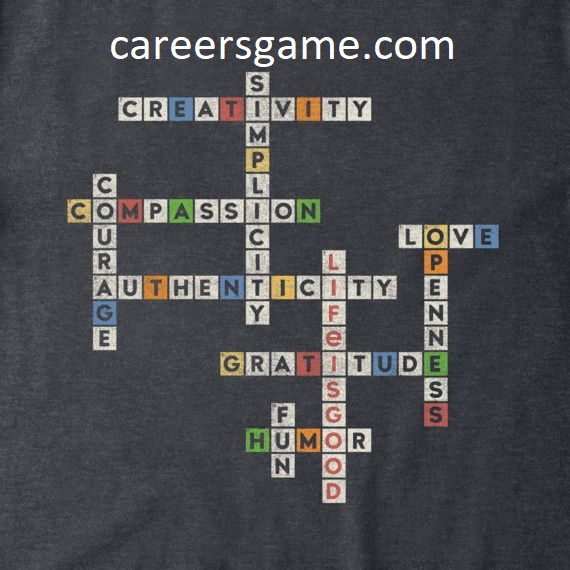The New York Times (NYT) crossword puzzle is one of the most well-known and respected crossword puzzles in the world. It has been a part of American culture for decades, challenging puzzle enthusiasts and providing a daily mental workout. Among the many themes and clues that appear in the NYT crossword, the term “statesman” can frequently be found, offering an interesting glimpse into history, politics, and the art of clue construction. In this article, we will explore the significance of the term “statesman” in the context of the NYT crossword, how it is used as a clue, and its connection to some of the most important figures in history.
1. The History of the NYT Crossword
The New York Times crossword puzzle, first introduced in 1942, quickly became a beloved daily tradition for many. Created by Arthur Wynne, it has grown into one of the most prestigious puzzles of its kind. The NYT crossword is known for its high quality, clever wordplay, and the skillful construction of clues, which range from easy to extremely challenging.
Over the years, the crossword has featured countless clues related to various themes, from pop culture and science to history and geography. The puzzle’s editors often introduce creative or witty twists that require solvers to think outside the box. As a result, the NYT crossword has earned a devoted following, with people of all ages and backgrounds dedicating time to solving the puzzle each day.
2. What Is a “Statesman”?
A “statesman” is generally defined as a skilled, experienced, and respected political leader or figure who has contributed to the governance of their country or region. Statesmen are often distinguished from politicians by their broader vision, diplomacy, and ability to lead with wisdom and integrity. Historically, a statesman might be someone like George Washington, Winston Churchill, or Nelson Mandela—figures whose actions transcended short-term political interests and whose legacies have had long-lasting impacts on their nations and the world.
The term “statesman” is often associated with individuals who have played pivotal roles in shaping history, either through leadership during a time of crisis, negotiation, or significant reforms. Unlike politicians, whose actions may focus on gaining power or serving specific interests, statesmen are revered for their ability to rise above these considerations and serve the greater good.
3. Statesman in the NYT Crossword
In the context of the NYT crossword, the term “statesman” can appear in various forms, both as a clue and as an answer. It often refers to well-known political figures from history, as solvers are asked to identify the names of these influential individuals. A clue for “statesman” might read something like “Famed American statesman,” with the answer being “Franklin” (as in Benjamin Franklin). Alternatively, it could be a more cryptic clue, such as “Leader of nations” or “Global diplomat,” leading to answers like “Churchill” or “Mandela.”
One of the interesting aspects of crossword construction is how clues can vary in difficulty. For instance, a statesman from the 20th century might be easier for modern solvers to identify, while one from the 19th or earlier might be more challenging, requiring a strong knowledge of history. In some cases, the clue might ask for a statesman who served in a specific role, such as “US Secretary of State” or “British Prime Minister,” leading to more specific answers like “Kissinger” or “Attlee.”
4. Famous Statesmen Often Featured in the NYT Crossword
Given the importance of historical figures in shaping the world, the NYT crossword often features clues related to notable statesmen. Some of the most frequently referenced statesmen in the puzzle’s history include:
- Abraham Lincoln: The 16th President of the United States, widely regarded as one of the greatest American statesmen. His leadership during the Civil War and his role in ending slavery have made him an enduring figure in both American and world history. The NYT crossword often features clues related to Lincoln’s role in the Emancipation Proclamation or his time in office.
- Winston Churchill: The British Prime Minister during World War II, known for his leadership and speeches that inspired resilience in the face of adversity. Churchill’s strategic brilliance in navigating the war and post-war reconstruction has solidified his place as a prominent statesman in crossword puzzles.
- Nelson Mandela: A South African anti-apartheid revolutionary who became the country’s first Black president. Mandela’s pursuit of peace, justice, and reconciliation earned him international recognition as a statesman and a symbol of global leadership.
- George Washington: The first President of the United States and one of the founding fathers of the nation. Washington’s leadership during the American Revolution and his role in establishing the principles of the United States government make him a common answer in crossword puzzles.
- Henry Kissinger: The U.S. Secretary of State and National Security Advisor under Presidents Nixon and Ford. Kissinger is often featured in crosswords because of his role in shaping U.S. foreign policy during the Cold War, particularly in relation to China and Vietnam.
5. Cryptic and Challenging Statesman Clues
One of the hallmarks of the NYT crossword is its clever and sometimes cryptic clues, which can make even familiar answers difficult to figure out. A clue for a “statesman” may not always be straightforward. For example, instead of simply asking for a famous leader’s name, a crossword clue might be more elusive, such as “Teddy’s successor” or “Austrian diplomat at the Congress of Vienna,” requiring a deeper knowledge of history to solve.
Such clues challenge solvers to connect historical events, roles, and relationships between figures in a way that tests both general knowledge and logical thinking. For example, “Austrian diplomat at the Congress of Vienna” might refer to Klemens von Metternich, an important statesman during the 19th century whose influence shaped European diplomacy for much of that era.
6. Why Statesman Clues Are Popular in the NYT Crossword
The inclusion of “statesman” clues in the NYT crossword reflects the puzzle’s balance of challenging and educational content. These types of clues are popular because they engage solvers with historical knowledge, encouraging them to recall important figures who have shaped the course of history. Additionally, political leaders often have distinctive legacies and characteristics that make them memorable, which helps solvers fill in the answers more easily.
Furthermore, the presence of statesman-related clues often ties into broader themes of power, diplomacy, and conflict, all of which are central to human history. This makes them a fitting subject for inclusion in a puzzle designed not just to entertain but to provoke thought and reflection on the world around us.
7. Conclusion
The NYT crossword is much more than a daily brain teaser; it is a reflection of the cultural and historical landscape, often incorporating clues related to famous figures such as statesmen. These individuals, from George Washington to Nelson Mandela, shaped the world with their leadership and vision. As solvers tackle crossword puzzles, they engage with history in a fun and challenging way, expanding their knowledge while honing their problem-solving skills.
The inclusion of statesman clues in the NYT crossword serves as both a tribute to those who have made significant contributions to society and a tool for educating solvers on the legacies of these figures. For crossword enthusiasts, these clues offer an opportunity to revisit history, test their knowledge, and continue learning about the people who have defined the course of nations and the world at large.



